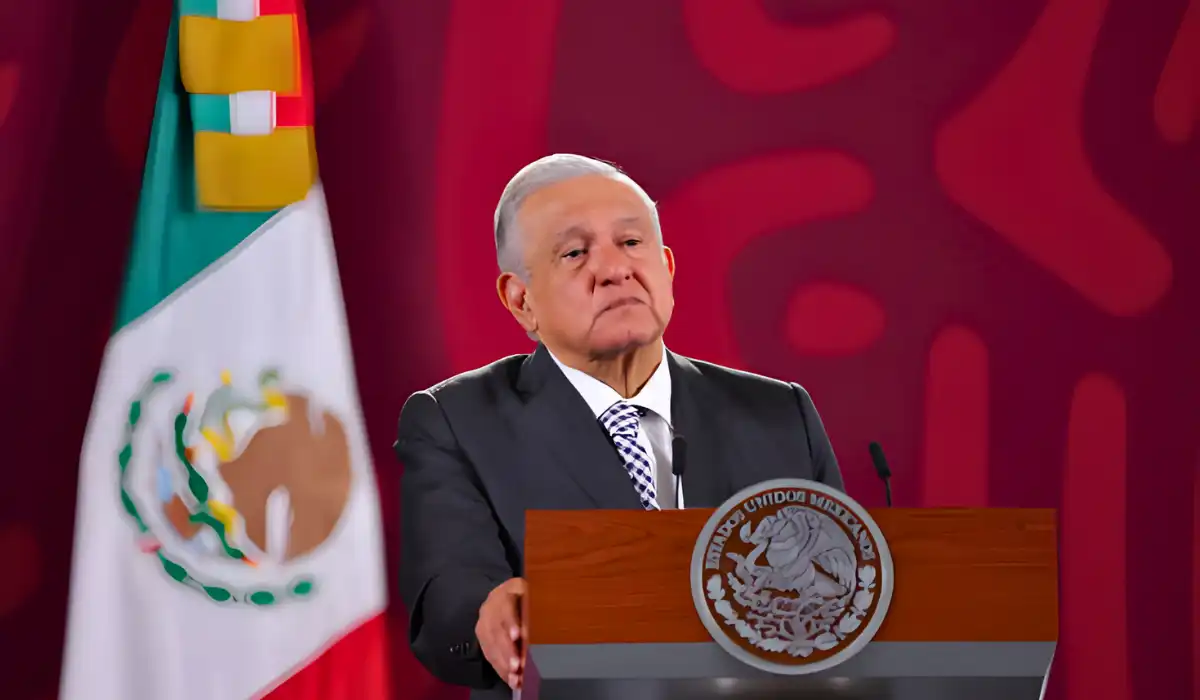In a surprising diplomatic move, Mexican President Andrés Manuel López Obrador has declared a “pause” in relations with the U.S. embassy. This decision follows sharp criticism from U.S. Ambassador Ken Salazar regarding López Obrador’s proposed judicial reforms. The dispute highlights growing tensions between Mexico and its northern neighbor over significant political and legal issues.
Diplomatic Freeze Over Judicial Reforms
The diplomatic freeze announced by López Obrador comes after Salazar publicly condemned the Mexican president’s proposal to reform the country’s judicial system. The proposed reforms aim to shift the selection of judges, including those in the Supreme Court, from an appointment-based system to a direct election by the public.

López Obrador argues that this change would make the judiciary more democratic and accountable. However, critics, including Salazar, have voiced concerns that such a shift could undermine Mexico’s democratic institutions and the rule of law.
In a statement, Salazar labeled the proposed reforms as “a major risk” to Mexican democracy. He warned that the potential for elected judges to be influenced by political pressures could weaken the judicial system’s independence. This critique did not sit well with López Obrador, who responded by accusing Salazar of interfering in Mexico’s internal affairs and challenging the country’s sovereignty.
Tensions with the U.S. and Canada
The “pause” in relations with the U.S. embassy is not an outright severance of diplomatic ties but a temporary halt in certain diplomatic interactions. López Obrador clarified that the pause targets the embassy and not the broader U.S.-Mexico relationship. The Mexican president expressed frustration over what he perceives as unwarranted foreign interference in Mexico’s domestic policies.
The situation is further complicated by similar tensions with Canada. Canada’s ambassador also raised concerns about the judicial reforms, prompting López Obrador to extend the pause to Canadian diplomatic relations as well. Both the U.S. and Canadian criticisms have fueled accusations of interference in Mexico’s sovereign decisions.
Judicial Reforms and Domestic Reactions
The proposed judicial reforms are set to be reviewed and voted on by Mexico’s new Congress in September. The reforms would allow for the direct election of judges, a significant departure from the current system where judges are appointed based on qualifications and merit. Proponents of the reform argue that it will increase transparency and public trust in the judiciary. However, critics, including many members of the judiciary, fear that the reforms could lead to the politicization of the judicial branch and compromise its effectiveness.
The Mexican Supreme Court has been a vocal opponent of the proposed changes. In response to the controversy, many judges across the country have staged strikes and protests. The judiciary’s resistance underscores the contentious nature of the proposed reforms and the broader political climate in Mexico.
U.S. Response and Diplomatic Context
In response to the diplomatic pause, U.S. officials have emphasized their support for judicial reform in Mexico but have reiterated their concerns about the specific nature of the proposed changes. Salazar’s comments, while critical, were intended to reflect a broader concern about maintaining democratic norms and the rule of law in Mexico.
The timing of the diplomatic pause also coincides with other geopolitical issues, including ongoing concerns about drug trafficking and organized crime. The recent developments in Mexico’s relationship with the U.S. come amid a backdrop of complex and often fraught interactions between the two countries.
Moving Forward
As Mexico navigates these diplomatic tensions, the impact of the “pause” on U.S.-Mexico relations remains to be seen. The decision highlights the delicate balance that countries must maintain in addressing domestic policy changes while managing international relationships. Both Mexico and the U.S. will need to carefully manage their diplomatic interactions to avoid further escalation and work towards mutual understanding and cooperation.
The situation is still developing, and the coming weeks will be crucial in determining how these diplomatic issues will be resolved and how they might affect broader bilateral relations.

